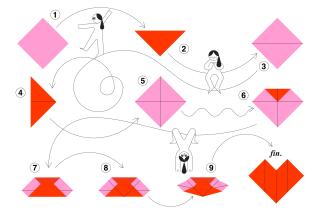A Free-Spirited Primer to Help Parents
- Share via
Please Touch: How to Stimulate Your Child’s Creative Development by Susan Striker (Fireside Books/Simon & Schuster: $9.95 paperback).
Every now and then, someone produces a book that makes you want to turn back the clock: Oh, to have tolerated a messier house, to have read those Golden Books to my cuddly 18-month-old with more patience--and to have used some of Susan Striker’s bold, quite ingenious ideas for raising a free-spirited child.
Art teacher and author of “The Anti-Coloring Book,” which says “no” to staying within the lines, Striker seeks to enhance children’s creativity through art, music, play activities and exercises in imagination. With passionate, almost manic intensity, she insists that children observe and appreciate the world’s “light, air, water, hard, soft, day, night, language, movement, walking, eating, love.” And, as she says, these are the merest “starters.”
But before detailing how to make edible play dough (peanut butter and honey), how to encourage a child to wall and/or body paint, to scribble--an activity that seems to result in good handwriting--or how to conduct marvelous birthday parties, fair warning: Some of Striker’s suggestions may appall a mother-in-law, infuriate a husband and certainly not sit well with the landlord.
Striker is big on using applesauce, mashed peas and other edibles for “textual experience.” In fact, the “artistic” chocolate-pudding marks applied by her son remained on this family’s apartment walls after they decamped.
But “Please Touch” is a treasure trove of resources, including a list of children’s museums and zoos throughout the country, a roundup of educational toys, the words to classical chants and songs and an annotated bibliography of children’s books and records.
Though few mothers these days will be able to follow Striker’s example in staying home--even during these critical developmental years of birth through late age 3--many will praise her premise that “Your child’s development, not your possessions, must be the highest priority.”
More to Read
Sign up for our Book Club newsletter
Get the latest news, events and more from the Los Angeles Times Book Club, and help us get L.A. reading and talking.
You may occasionally receive promotional content from the Los Angeles Times.










